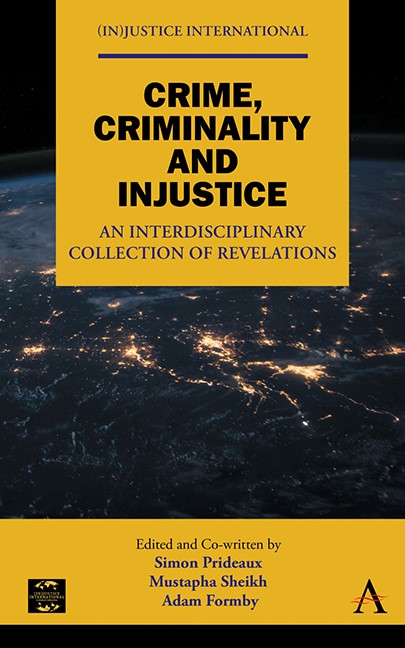Book contents
- Frontmatter
- Dedication
- Contents
- Acknowledgements
- List of Editors and Contributors
- Editor’s Introduction to the Book
- Part One Incarceration, Cultural Destruction and Ecocide: The Alienation of Ethnic Minorities, Nature and Indigenous Peoples
- Part Two The Impoverishment, Exclusion and Maltreatment of the Working Poor
- Part Three Disability, Poverty and Neglect
- Part Four Youth, Gender, Migration and Human Trafficking
- Concluding Remarks
- Index
Introduction To Part Two
Published online by Cambridge University Press: 14 November 2023
- Frontmatter
- Dedication
- Contents
- Acknowledgements
- List of Editors and Contributors
- Editor’s Introduction to the Book
- Part One Incarceration, Cultural Destruction and Ecocide: The Alienation of Ethnic Minorities, Nature and Indigenous Peoples
- Part Two The Impoverishment, Exclusion and Maltreatment of the Working Poor
- Part Three Disability, Poverty and Neglect
- Part Four Youth, Gender, Migration and Human Trafficking
- Concluding Remarks
- Index
Summary
A Frame of Reference
Politics is part of the air that we all live and breathe. It is about what we are allowed and not allowed to do. It is about friends and enemies. It permeates every pore of our bodies and makes assessments and judgements about our worth in society. It is about reward, freedom, punishment or confinement, marginalisation, (institutional) discrimination and criminalisation. But most of all it is about how we understand, embrace or oppose it. Policy typifies all of this and can be seen to be stereotypically judgemental about the most ‘visible’ recipients of welfare benefits. This is particularly true of the UK welfare system. And there lies the hypocrisy of powerful elites.
As Richard Titmuss pointed out in his Essays on the Welfare State (1958), the Social Divisions of Welfare meant that we are all recipients of welfare. Welfare, for Titmuss, is manifest in three different forms (four when you include the unpaid caring role of women conducted outside of the paid labour market). ‘Occupational Welfare’, he argued, conveys rewards for those who supposedly pay deference to social norms and behaviour. It does so, through the non-taxable or tax-privileged perks derived from advantageous employment in the labour market (i.e. through ‘golden handshakes’, employer pension contributions and fringe benefits such as meal vouchers and/or private healthcare schemes).
Likewise, ‘Fiscal Welfare’ rewards individuals by granting tax allowances on non-State pensions (estimated to cost the UK government, for instance, £14.3 billion in 2005/6) and mortgage relief for ‘responsible’ home-owners. Yet, unlike ‘Occupational Welfare’ and ‘Fiscal Welfare’ – which are rewards derived from the government curtailing its tax revenue and leaving more money for the so-called industrious or wealthy to keep – ‘Social Welfare’ involves a direct payment to these recipients of welfare. ‘Social Welfare’, therefore, concerns the visible, publicly provided funds and services such as social security benefits, local authority housing, healthcare and personal social services.
But all of this has echoes beyond the United Kingdom. Australia and the United States, to name but two, conceive of welfare in similar ways. For example, tied into the notion of benefit payments, as opposed to tax allowances, is the ‘Murrayesque’ concept of ‘workfare’ and the stigmatisation that claiming benefit payments entail.
- Type
- Chapter
- Information
- Crime, Criminality and InjusticeAn Interdisciplinary Collection of Revelations, pp. 57 - 62Publisher: Anthem PressPrint publication year: 2023

